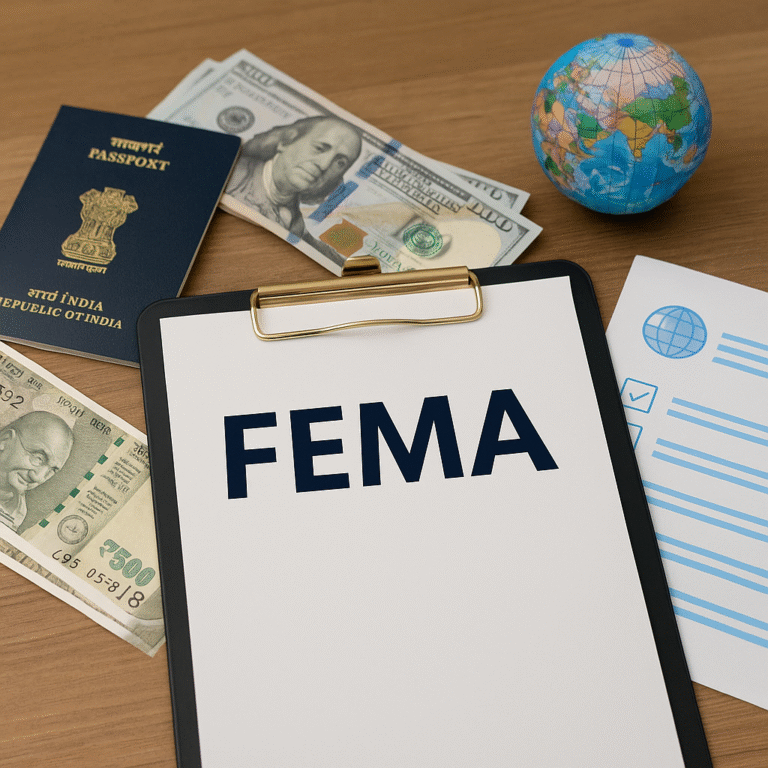Understanding FEMA Compliance for NRIs
FEMA compliance isn’t just about rules — it’s key to seamless global financial operations
Whether you’re investing in India or sending money abroad, the Foreign Exchange Management Act (FEMA) ensures your cross-border transactions are legally sound and financially secure.

Here’s why FEMA compliance matters:
- Covers every foreign transaction — investments, remittances, imports, exports, and more
- Mandatory for NRIs and residents dealing with foreign currency or overseas parties
- Ensures transparency in FDI, overseas investments, and personal remittances
- Avoids legal penalties for non-compliance or improper reporting
- Helps maintain a clean record with RBI and tax authorities
FEMA Compliance Made Simple
FEMA applies to:
NRIs/PIOs: Investing, holding assets, or remitting funds in/from India
Indian entities: Making foreign investments or receiving overseas funding
Foreign companies: Operating or investing in India
Individuals: Sending/receiving money abroad under LRS or importing/exporting goods
Checklist to Stay Compliant
- Identify the transaction type (FDI, LRS, ODI, etc.)
- Check if RBI approval is required or if it’s under the automatic route
- Route transactions through authorized dealer banks
- Maintain complete documentation (agreements, KYC, CA valuation, etc.)
- Comply with KYC & post-transaction reporting obligations
Final Thought
Being FEMA-compliant is not just regulatory — it’s reputational.
NRIs and Indian businesses who stay compliant ensure smooth cross-border dealings and avoid costly mistakes. For a safer financial future, stay informed and stay compliant.
